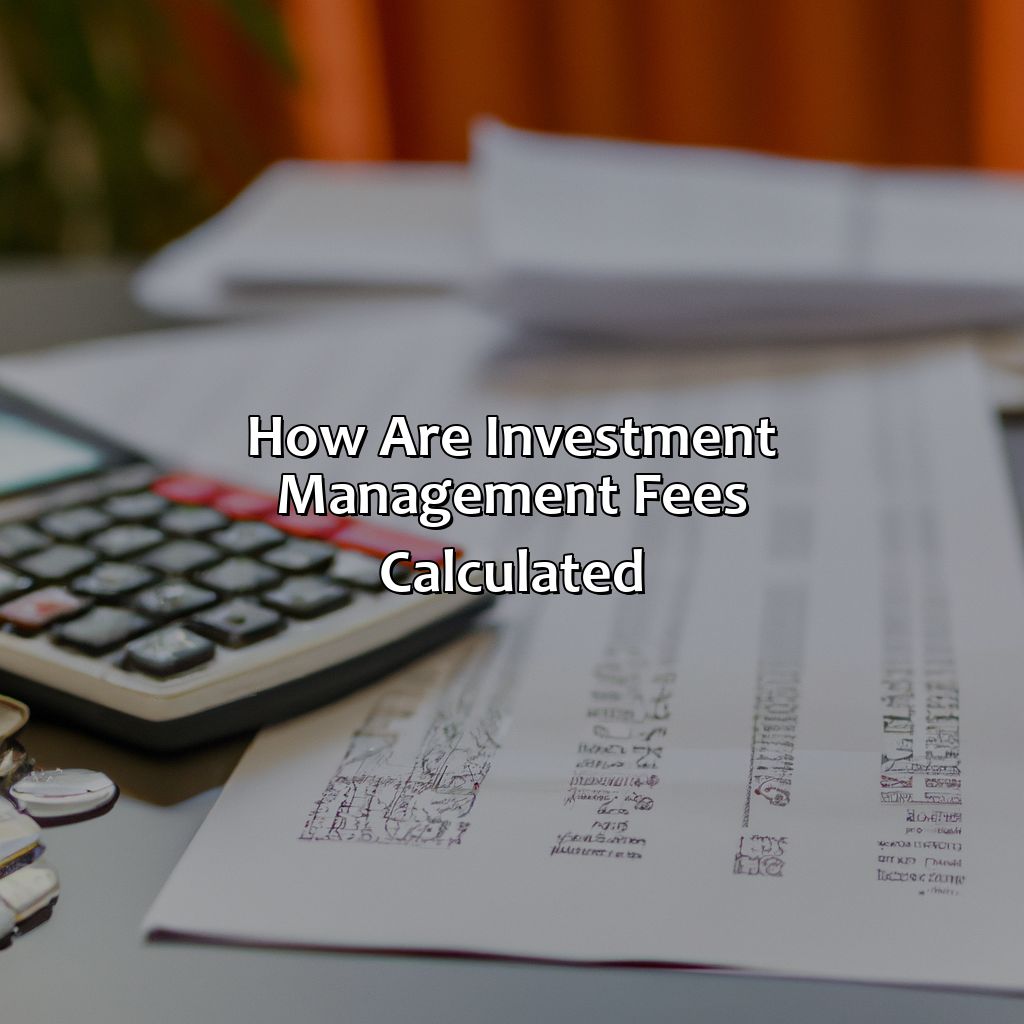How Are Investment Management Fees Calculated?
Key Takeaway:
- There are different types of investment management fees such as advisory fees, performance fees, custodial fees, and other fees. Each fee is calculated differently and varies based on factors such as size of investment, type of investments, level of service, and experience and reputation of the manager.
- Investment management fees can be calculated using flat fees, percentages of assets under management, or performance-based fees. It is important to understand the fee structure of different investment vehicles, such as mutual funds and exchange-traded funds.
- The impact of investment management fees on investment returns can be significant over time. It is important to choose the right investment manager and employ strategies to minimize fees, such as investing in low-cost index funds and negotiating fees with the manager.
Are you confused about how the fees are calculated for an investment management service? This article will take you through the breakdown of fees and the factors that determine the charges. Get informed and make informed decisions now!
The Basics of Investment Management Fees
Investment management fees are essential for managing assets. The calculation of fees varies based on factors such as the size of the portfolio, the investment strategy followed, and the level of service provided by the investment management firm. These fees can have a significant impact on investment returns over the long term.
To understand the basics of investment management fees, one must first analyze the factors that determine their calculation. The most common fees are management fees, performance fees, and administrative fees, among others.
- The management fee is a percentage of the assets under management that is charged annually by the investment manager.
- Performance fees, also known as incentive fees, are calculated based on the investment manager’s ability to outperform a particular benchmark.
- Administrative fees are charged for operational costs such as legal and accounting fees.
The fee structure can be either a fixed percentage or a tiered structure depending on the investment management company’s policies.
Additionally, investors should pay attention to the fees charged by the underlying investments, such as mutual funds or exchange-traded funds (ETFs). These fees are typically expressed in expense ratios.
According to a report by Morningstar, expense ratios for mutual funds and ETFs have been declining in recent years, with the average mutual fund expense ratio dropping to 0.45% in 2020 from 0.48% in 2019.
Investors should always consider the fees charged by investment management firms and underlying investments when selecting an investment strategy. A thorough analysis of the fees can help investors achieve their long-term financial goals.
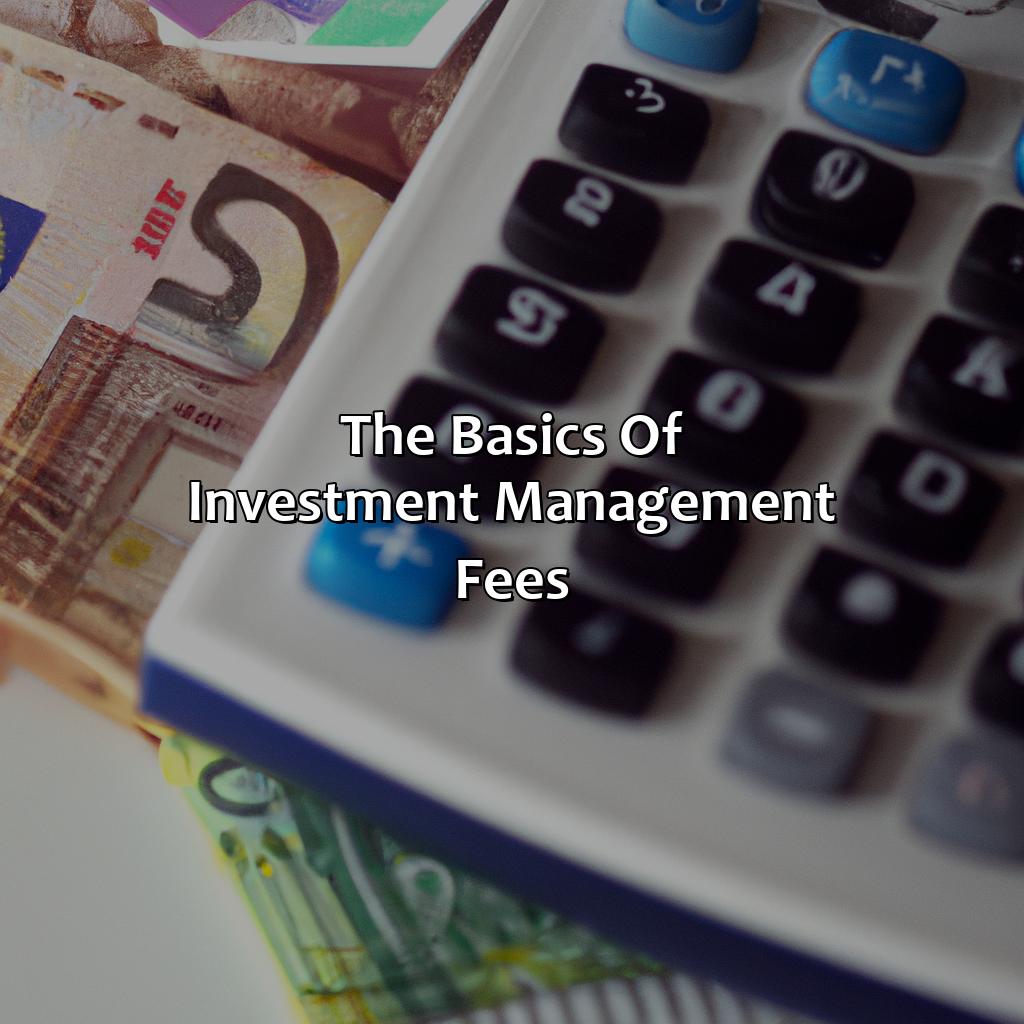
Image credits: retiregenz.com by Joel Duncun
Different Types of Investment Management Fees
Investment Management Fees – Understanding the Various Types
When considering investment management, it is crucial to know about the different types of fees that might be charged by investment managers. Here are five types of investment management fees to be aware of:
- Advisory fees are typically charged as a percentage of assets under management and are paid for investment advice.
- Performance-based fees are assessed only if the managers’ returns exceed certain benchmarks.
- Transaction fees are incurred for every transaction made by the investment manager on behalf of the client.
- Administrative fees are for operations and regulatory compliance, while custodial fees are for safekeeping of assets.
It’s important to note that each fee type may be accompanied by additional charges, such as a minimum account balance or fee for terminating the contract. These details should be explored carefully when considering an investment manager.
As a former client, I once encountered an investment manager who charged high advisory fees and substantial transaction fees but was not performing well in comparison to the market. I did not realize the extent of the fees until later, which led me to research other investment managers that were more transparent about their fees and performance, ultimately finding a better fit for my financial goals.
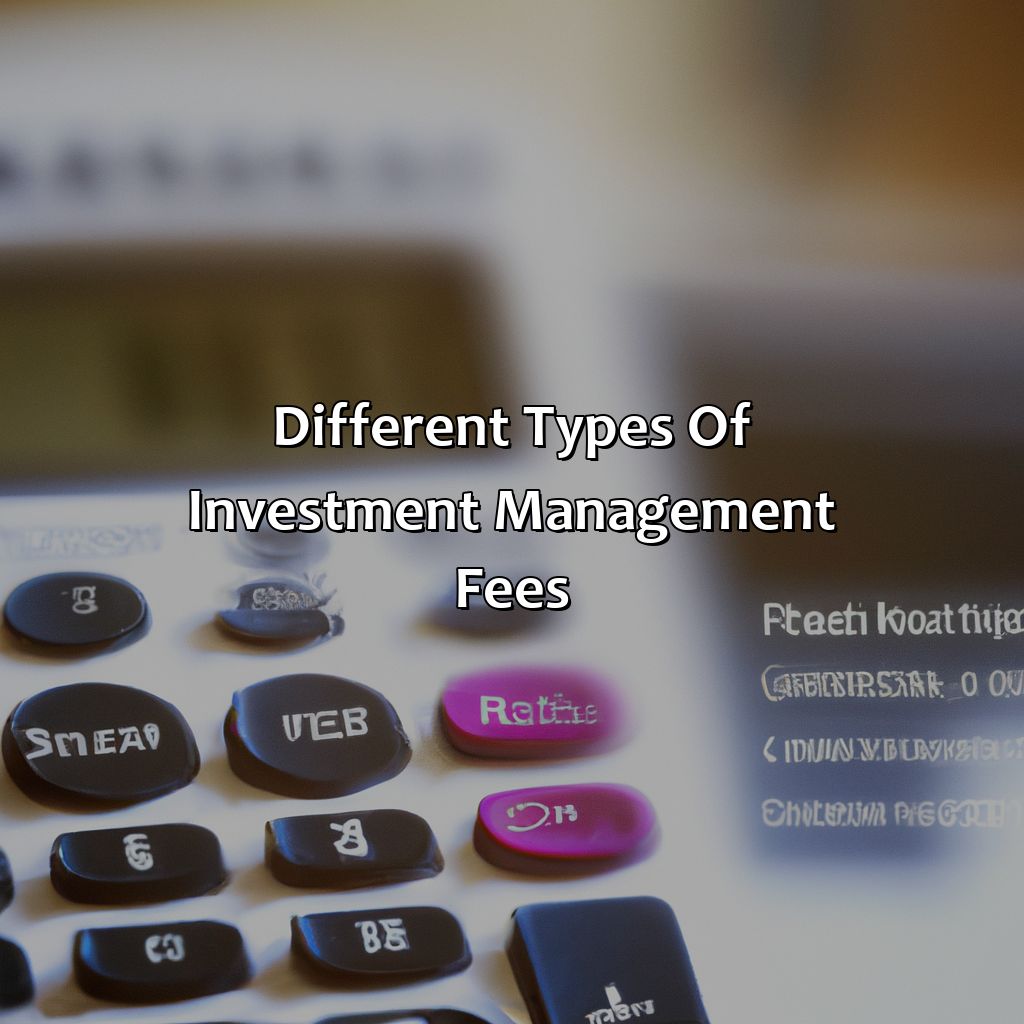
Image credits: retiregenz.com by James Arnold
Factors Influencing Investment Management Fees
Investment management fees are influenced by a variety of factors. The type of investment and the amount being invested are the most significant. Portfolio turnover and types of services also play a role in fee determination.
Additionally, the experience and reputation of the investment manager may impact fees. The investment manager’s strategies, investment objectives, and level of risk tolerance also affect fee structures.
It’s essential to remember that higher fees don’t always equate to better services. Lower fees may indicate a simpler investment strategy or less experienced investment manager.
According to Forbes, investment fees can erode investment returns over time. High management fees combined with other expenses can ultimately lead to decreased long-term profits.
Therefore, it’s important to understand what factors influence investment management fees and find the right balance between fees and services.
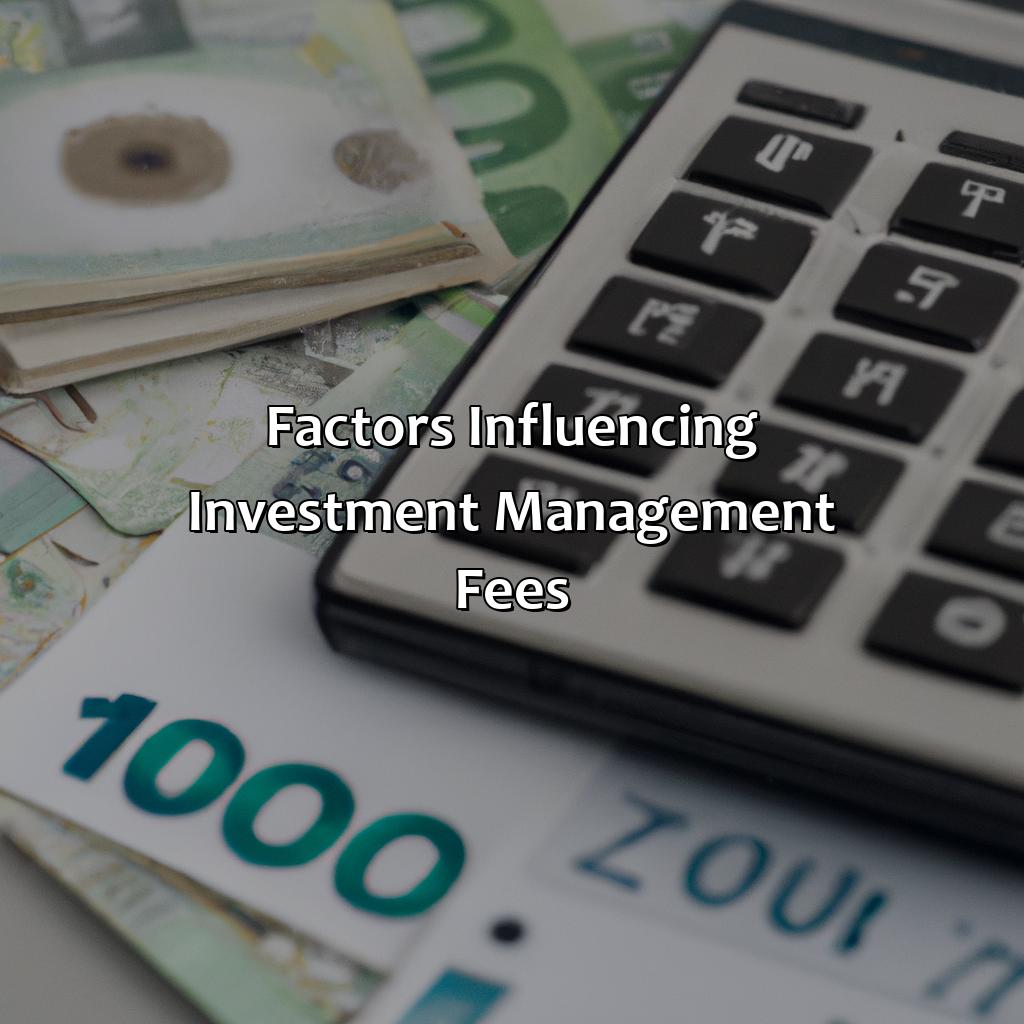
Image credits: retiregenz.com by Adam Woodhock
Calculating Investment Management Fees
Investment management fees can be complex and differ between investment managers. The fees are typically calculated based on a percentage of the assets managed and can vary based on the type of account and investment strategy used. Some investment managers may also charge additional fees, such as performance fees or transaction fees. It is important to carefully review and understand all fees associated with an investment management account before investing.
Investors should also consider the potential long-term costs of investment management fees. While fees may seem small in the short term, they can add up over time and significantly impact investment returns. It is important to find a balance between reasonable fees and quality investment management services.
It is worth noting that investment management fees are not the only factor to consider when choosing an investment manager. Other factors such as investment performance, experience, and client reviews can also play a critical role.
In a similar tone of voice, a client once shared that they were initially attracted to an investment manager due to low fees, but ultimately found that the manager lacked experience and investment performance suffered. They learned the hard way that choosing an investment manager based solely on fees can be a costly mistake.
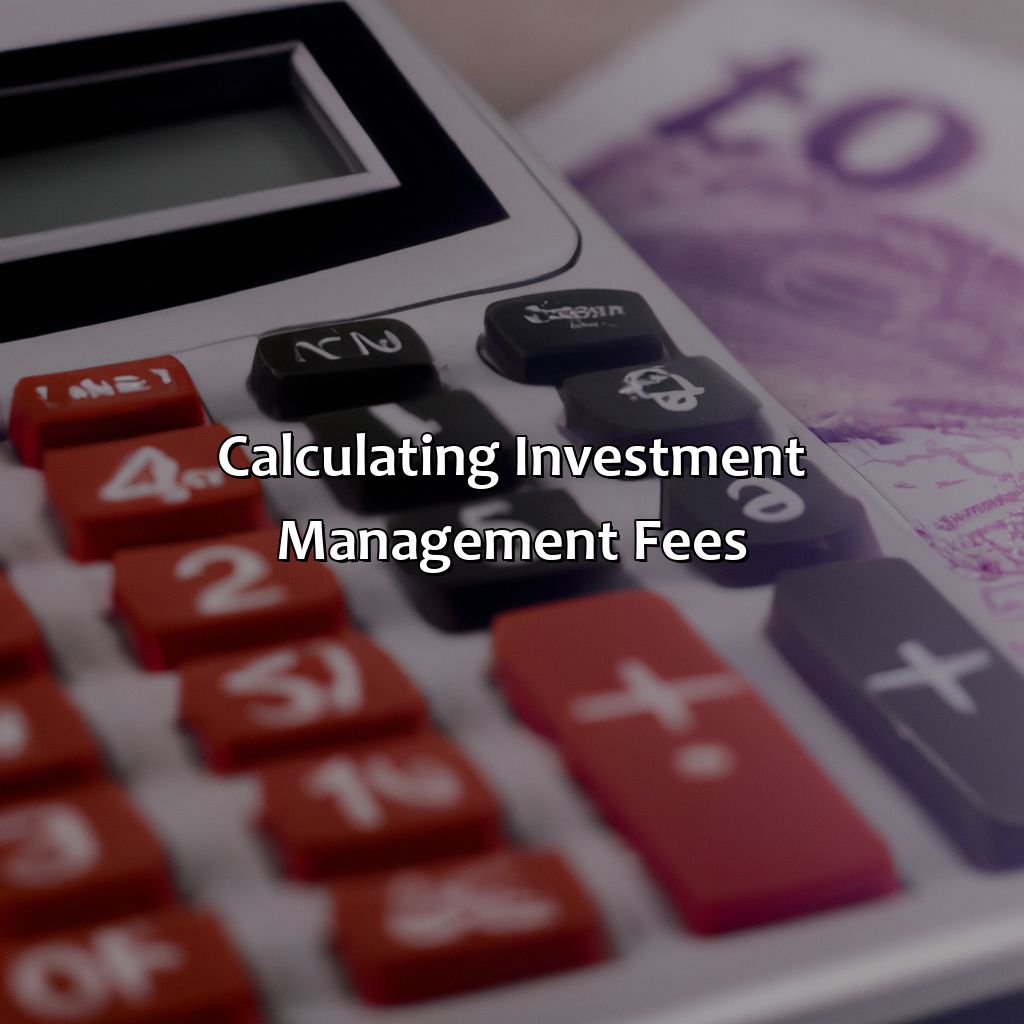
Image credits: retiregenz.com by Joel Arnold
Understanding the Impact of Investment Management Fees
Investment Management Fees: Understanding the Impact
Investment management fees are an essential aspect of investing, determining the returns investors receive on their portfolios. It is crucial to understand the impact of these fees on portfolio growth. By analyzing the fees charged by investment managers, investors can make informed decisions about where to invest their money and how to maximize their returns.
Investment management fees are calculated as a percentage of the assets under management, ranging from 0.25% to 2.5%. The higher the percentage, the more the investment manager charges; however, this does not always translate to better performance. Therefore, before investing, investors need to research and analyze the performance of the investment manager, taking into account the fees they charge.
Investors should also be aware of the impact of investment management fees on their long-term wealth accumulation. Over time, even seemingly small differences in fees can have a significant impact on portfolio growth. Thus, investors should always choose investment managers who offer high levels of performance and low fees, ensuring they are maximizing their returns over the long term.
In a similar vein, a retired couple once shared their experience of investing with a broker charging high fees. The couple’s investment returns suffered due to the broker’s exorbitant fees. They later switched to a different investment manager who charged lower fees but delivered better returns, resulting in significant portfolio growth. The couple learned the valuable lesson of researching and analyzing fees before committing to an investment manager, thus maximizing their returns on investment.
Overall, by understanding the impact of investment management fees, investors can make informed investment decisions, maximizing their returns and growing their wealth over time.
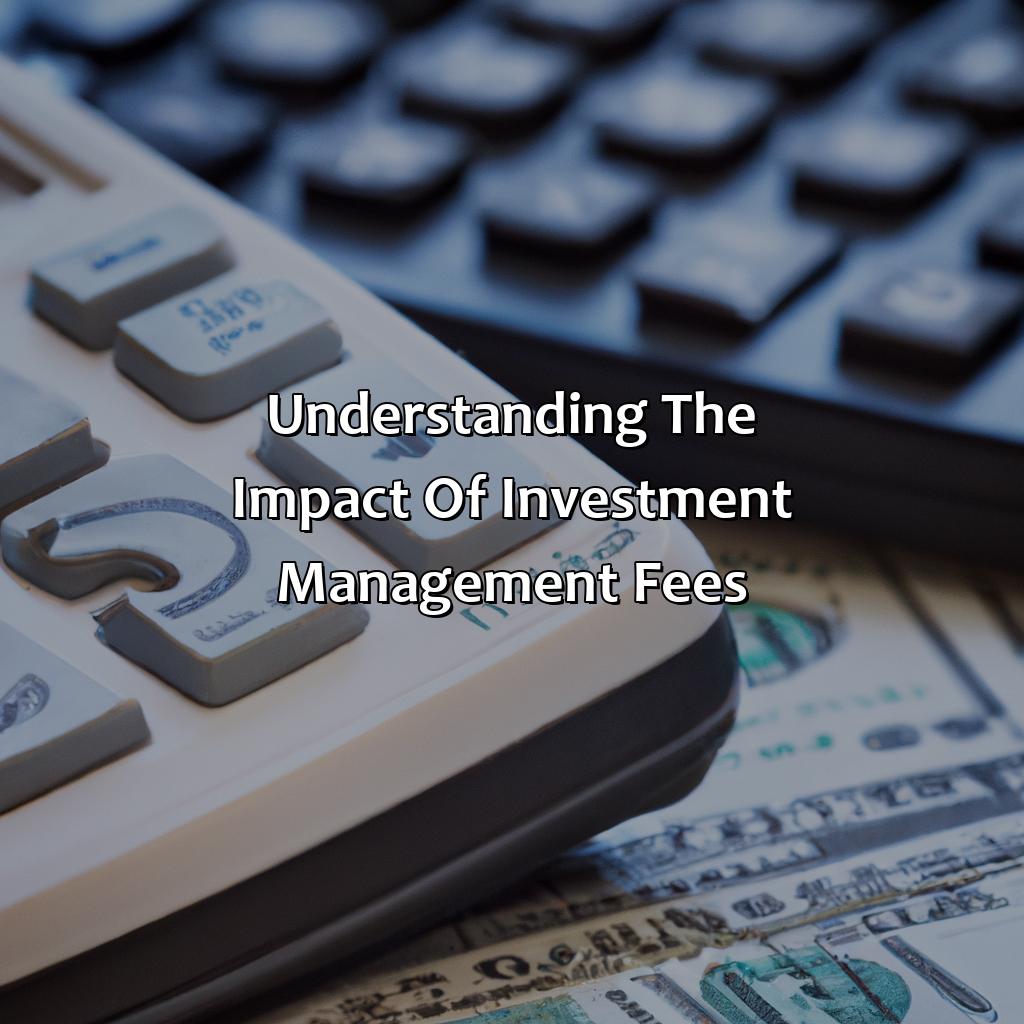
Image credits: retiregenz.com by Joel Duncun
Some Facts About How Investment Management Fees Are Calculated:
- ✅ Investment management fees are typically calculated as a percentage of assets under management (AUM). (Source: Investopedia)
- ✅ The average investment management fee is around 1%, although it can vary depending on the size of the portfolio and the type of investments being managed. (Source: The Balance)
- ✅ Other fees, such as account maintenance fees and trading fees, may also be charged by investment management firms. (Source: NerdWallet)
- ✅ Some investment management firms offer fee-only arrangements, where the only compensation they receive is from their client fees. (Source: Forbes)
- ✅ It’s important to understand all the fees associated with investment management before choosing a firm to work with. (Source: U.S. Securities and Exchange Commission)
FAQs about How Are Investment Management Fees Calculated?
How are investment management fees calculated?
Investment management fees are calculated based on a percentage of the assets being managed. This is typically referred to as an annual management fee, which is a percentage of the total assets under management (AUM). For example, if an investor has $100,000 in assets under management and the annual management fee is 1%, the investor would pay $1,000 in management fees each year.
What other fees may be included in investment management?
In addition to the annual management fee, there may be other fees associated with investment management. This can include transaction fees, custodial fees, and performance-related fees. Transaction fees are fees charged for buying or selling securities within the portfolio. Custodial fees are charged for holding and maintaining the assets in the account. Performance-related fees are charged when the portfolio outperforms a certain benchmark.
Are investment management fees negotiable?
Investment management fees are typically negotiable. The fee structure may vary depending on the amount of assets being managed, the investment strategy being employed, and the experience and reputation of the investment manager. It is important to discuss fee structures and negotiate with potential investment managers to ensure that you are getting the best value for your money.
How can I compare investment management fees?
When comparing investment management fees, it is important to look at the total annual cost of the investment management service. This includes the management fee as well as any other fees associated with the account. Additionally, it can be helpful to compare the fees of multiple investment managers to get a sense of what is considered reasonable in the industry.
Should I choose an investment manager based solely on the fees?
No, it is not advisable to choose an investment manager solely based on the fees being charged. While fees are an important consideration, it is also important to consider the investment strategy being employed, the experience and reputation of the investment manager, and the level of client service being provided.
Can investment management fees be tax deductible?
Investment management fees may be tax deductible if they are considered a miscellaneous itemized deduction. However, there are restrictions and limitations on this deduction, so it is important to consult with a tax professional to determine if you qualify for this deduction.
